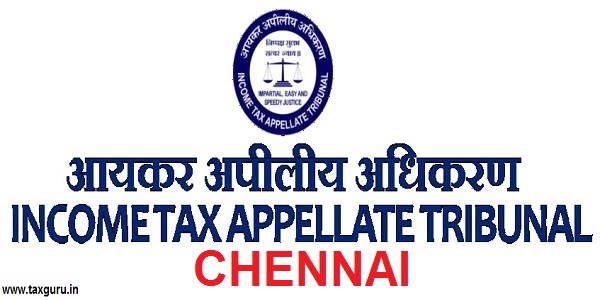Case Law Details
SUMMARY OF CASE LAW
Shipping income derived from international operations is outside the purview of the Indo-Swiss Tax Treaty and it is left to be taxed under the domestic law i.e. the Income-tax Act, 1961.
RELEVANT PARAGRAPH
1. The applicant – a non-resident shipping Company incorporated under the laws of Switzerland seeks advance ruling from this Authority on the following questions:
(1) Whether during the previous years relevant to assessment years 2008-09 and 2009-10, the applicant, in the stated facts and circumstances, had a Permanent Establishment in India under Article 5 of India-Switzerland Double Taxation Avoidance Agreement in relation to activity of charter of vessels for transporting cargoes from Indian ports to outside India ?
(2) If the answer to the first question is negative, whether income of the applicant from such charter of vessels is not liable to tax in India under the Treaty?
6. It is the contention of the applicant that the profits from the operation of ships in international traffic which stand excluded by Art.7 should be brought within the purview of Art.22 and in view of the fact that the applicant does not have a permanent establishment in India as contemplated by para 2 of Art.22, only the State of residence can levy tax in terms of the first para of Art.22. On the other hand, the Revenue contends that the item excluded by Art.7, namely the profits from international shipping business have been consciously kept outside the ambit of the Treaty and it cannot be brought within the fold of Art.22.
7. On a deep consideration, we are inclined to uphold the contention of the Revenue that the profits arising in India by the carriage of goods from Indian ports to foreign ports will be governed by the domestic law enforced in India i.e. the Income Tax Act, 1961. There are unmistakable indications in the Treaty provisions to show that shipping business income earned by a non-resident is not intended to be covered by the Treaty. The language and scheme of the provisions, the possible incongruities that would otherwise arise and a comparative study of other Treaties would lead us to the inevitable conclusion that shipping income derived from international operations is outside the purview of the Treaty and it is left to be taxed under the domestic law. We shall proceed to spell out the reasons which weighed with us in reaching such conclusion.
8. Art. 22 – a residuary article concerning `other incomes’ was introduced, as noted earlier, in 2001. Till then, there is no dispute and it cannot be disputed that the profits derived from the operation of ships in international traffic are left untouched by the Treaty because of the specific exclusion clause in Art.7. The obvious implication of exclusion is that such income can be subjected to domestic law discipline. Therefore, such income was liable to be taxed in accordance with and in the manner laid down in Section 172 of the IT Act. If this legal position was intended to be changed by the amendments made to the Treaty in 2001, a specific reference to this `item’ of income and specific language to bring it within the ambit of the Treaty should have been there. Neither a separate article is devoted to it nor is there explicit language in Art.22 to bring it within the coverage of that Article. When a particular species of income excluded from the ambit of the Treaty is sought to be brought within the scope of the Treaty for the first time, we would expect clear and specific language to express the intendment rather than leaving it to be taken care of by Art.22 by implication. At this juncture, it may be seen that a separate Article namely, Art.8 is devoted to the profits derived from the operation of aircraft in international traffic. For this, the explanation of the learned counsel for the applicant is that the profits derived from international air traffic are made taxable only in the State of residence and that is why a separate provision has been made, but as far as profits from shipping business are concerned, they are intended to be taxed by the source State in case there is a permanent establishment in that State. There is a fallacy in this argument. It raises an immediate question as to why the exclusion clause has been allowed to remain in Art.7 and why the shipping profits have been relegated to the residuary article i.e. Article 22, as contended by the applicant. It must be noted that both under Art.7 and Art.22, the right of taxation is conferred on the State of residence subject to the qualification that if the business is carried on through a permanent establishment, the source State will have the right of taxation. Thus, the same qualification or exception is carved out based on PE both in Art. 7 and Art. 22. That being the case, we do.11 not see any intelligible basis for retaining the exclusion clause in Art.7 while at the same time, shifting the shipping profits to Art.22. The substance and basis of taxation, as observed earlier, remains the same both in Art.7 and Art.22, wherever the PE exists. If that be so, excluding the international shipping profits from Art.7 and taking them to the fold of newly framed Art.22 would be a meaningless exercise. We do not think that the signatories to the Treaty would have thought of giving effect to their supposed intention in that manner. It is reasonable to think that when the Treaty was revisited in 2001, both the countries apparently desired to continue the status quo as regards the profits derived by non-residents from international shipping operations. At any rate, there would not have been a consensus to alter the existing position. That is why the exclusionary words in Art.7 have been retained.
9. Then, we shall pointedly turn our attention to the language of Art. 22 and test the argument of the applicant. The question is whether the profits from the shipping operations in international traffic can be said to be “an item of income” “not dealt with” in the previous Articles of DTAA? We do not think so. Among the various items of income in the foregoing Articles, business profits into which the shipping income falls has been dealt with under Art. 7. Profits from the international operation of ships are only a species of business profits just as the profits from international air transport. The latter is dealt with separately in Art.8 for the reason that it does not fall in line with the scheme of taxation of business profits under Art.7. Exclusive right is given to the State in which the enterprise resides. Permanent Establishment test is irrelevant under Art.8. Hence, a separate Article. As far as the profits from international operation of ships are concerned, it is an integral part of business profits; at the same time, they are excluded from the business profits-Article for the obvious reason that it is not intended to be covered by the Treaty. That income has been left to the care of domestic law under which the burden of taxation on such income has been minimized (vide Section 172 of IT Act). We are of the considered view that a particular species of income which is specifically referred to in Art.7 and deliberately left out of its genus, namely business profits, cannot be said to be an item of income not dealt with under Article 7. The expression `deal with’ is a comprehensive expression having different shades of meaning. In the New Chambers Thesaurus, the meanings of `deal with’ are given thus:
“1. deal with a situation, attend to, concern, see to, manage, handle, tackle, cope with, get to grips with, take care of, look after, sort out, process.”
In Collins Cobuild English Language Dictionary, it is stated thus:
“If a book, speech, film etc. deals with a particular thing, it has that thing as its subject or is concerned with it”.
In Shorter Oxford Dictionary (Thumb Index Edn.) one of the meanings
given is:
“be concerned with (a thing) in any way; busy or occupied oneself with, esp. with a view to discuss or refutation”.
The following meaning given in the New Oxford American Dictionary
may also be noted:.
“take measures concerning (someone or something)…………
take or have as a subject; discuss”.
Bearing these meanings in view, we shall consider whether Art.7 `deals with’ the profits from international shipping operations. Whether the exclusion of that particular species of business profits from Art.7 would amount to dealing with those profits is the question that should engage our attention. When the Article concerning business profits specifically refers to “profits from the operation of ships in international traffic” which are an integral part of business profits and then it ordains that such profits should go out of the ambit and reach of that Article, it can very well be said that the shipping profits have been dealt with in a particular manner in Article 7. The exclusion clause in Art.7 clearly reflects the conscious decision of the authors of the Treaty not to treat the shipping profits at par with the business profits for the purpose of allocating the taxing jurisdiction to the States concerned. In that way, the subject of shipping profits have been dealt with under Article 7. It is not an uncovered or untreated item. We are therefore of the view that for the purposes of Art.22, profits arising from the operation of ships in international traffic cannot be treated as a distinct item of income not dealt with in the preceding Articles of the Treaty.
9.1 The applicant’s counsel submitted that an item of income can be said to have been dealt with in an Article of the Treaty only if it defines its scope as well as allocates the right to tax such income between the two contracting States. Mere exclusion of shipping business profits from Article 7 does not amount to dealing with that item of income. We find it difficult to accept this contention. Allocation of taxing right to the source State can well be done by such a process of exclusion. There is no particular manner or methodology of achieving that result. The expression `dealt with’ does not necessarily mean that there should be a detailed or elaborate treatment of the subject.
9.2 Another argument projected by the learned counsel for the applicant was with reference to the language used in the DTAAs of some other countries viz. Australia, Malaysia, Singapore where the expression used is “not expressly mentioned”. According to the learned counsel, such language employed in Article 22/23 of those treaties might be suggestive of the interpretation sought to be placed by the Revenue; but, the expression “not dealt with” has a different dimension. We do not find merit in this contention. We have explained how the expression “dealt with” should be construed in the context of Art.7 and we reached the conclusion that the profits arising from international shipping operations have in fact been dealt with by that Article in the manner intended by the sovereign States which are signatories to the Treaty.
9.3 The counsel for the applicant then drew our attention to the Commentary on the United Nations Model Convention which explains the rationale of the provision reserving the right of taxation to the Country of residence in respect of aircraft and shipping operations. The following passage in UNMC Commentary has been referred to:
“The exemption from tax in the source country of foreign enterprises engaged in international shipping traffic is predicated largely on the premise that the income of these enterprises is earned on the high seas, that exposure to the tax laws of numerous countries is likely to result in double taxation or at best in difficult allocation problems, and that exemption in places other than the home country ensures that the enterprises will not be taxed in foreign countries if their overall operations turn out to be unprofitable. “
9.4 He has also referred to the comments of Prof. Klaus Vogel to the same effect:
“By laying down this rule, the MCs take account of the ways in which the international shipping and air transport industries typically manifest themselves. Their operations spread out over a multitude of States in which PEs are frequently set up to handle the business. Because a single flight or voyage will often involve stops in one foreign State after another, taxation under PE principle would result in difficulty of how to attribute to each of the PE its proper share in the profits made by the enterprise from transportation activities.”
9.5 No doubt, there appears to be a good reason for vesting the exclusive power of taxation on the country of residence of the business enterprise concerned in the case of both international shipping and air transport. However, in the absence of clear words in the India-Swiss Treaty, the shipping profits arising from international operations cannot be placed at par with the profits from the business of international air transport. Whether or not to accord the same treatment to the international shipping business is a matter of policy and it is left to the wisdom and volition of the sovereign representatives at the negotiating table. We have interpreted the Treaty as its stands without being unduly carried away by the adoption of a different criterion in the Model Conventions. In fact,
even the applicant does not go to the extent of saying that only the Country of residence can tax the shipping profits. The applicant agrees that the shipping profits can be taxed by the State of source if the enterprise concerned has a PE in that state. Thus, the applicant cannot derive much of assistance from the Commentaries referred to above.
10. A comparative study of the Treaties which India has entered into with various countries viz. USA, U.K., Australia including the land-locked countries (Switzerland being one such) like Uganda, Kazakstan and Mongolia would reveal that the item shipping profits was dealt with separately or in conjunction with air transport. Further in the treaties that Switzerland had entered into with certain other countries, to with, USA, Australia and Italy, a separate Article with respect to taxation of profits from the operation of ships and aircrafts, is found. A perusal of limited DTAAs which India had entered into with Oman and Russian Federation reveals that the profits from operation of ships and aircraft are both dealt with together and the power of taxation is given to the country of residence. In the limited DTAAs with Pakistan and UAE, such exclusive power has been conferred on the State of residence only in regard to air transport. We, therefore, see considerable force in the contention of the Revenue that whenever it was intended to cover the shipping income under the provisions of DTAA, a separate provision has been made therefor. The need for separate Article was all the more demanding. In Indo-Swiss Treaty, for the reason that such income stood
specifically excluded from Article 7.
Ist Question:
11. Strictly speaking, the question whether the applicant can be said to have permanent establishment in India need not be answered in view of the conclusion we have reached that the shipping profits are not covered by the DTAA and they have to be taxed under the domestic Law. However, we would like to observe that on the facts stated by the applicant in regard to the modalities of its business operations in India, it does not appear that there is a permanent establishment in India. The ruling on the first question is given accordingly.
2 nd Question:
12. The second question is answered against the applicant by holding that the freight income received by the applicant on account of carrying the cargo from the Indian ports to the foreign ports by deploying chartered vessels is liable to be taxed in India under the provisions of the Income-tax Act, 1961 and such income is not covered by the DTAA (Treaty) between India and Swiss Confederation.
12.1. The applicant has exercised its option as per Section 172(7) of the IT Act for the year 2008-09 just two days before presenting this application. Obviously, such option was exercised in anticipation of ruling of this Authority and by way of abundant caution so as to avoid. The time running out. The assessment proceedings have not gone beyond the stage of issuance of notice under Section 143(2) of the IT Act. It is now open to the applicant, in view of the ruling of this Authority, to retract from the said option and agree for assessment under Section 172 of the IT Act. Accordingly, the ruling is given and pronounced on this 30th day of September, 2009.





























